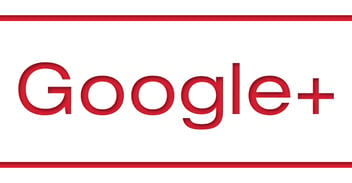Search engine optimization (SEO) is a word we hear multiple times a day. Most people are interested in it, few know what it means, and almost no one knows how to achieve a sustainable plan for SEO. With so many outlets offering cheap monthly plans to “manage” your SEO, with a laundry list of deliverables, the task can seem even more daunting then it has to be. Simply put, you will never be found on the web unless you get serious about managing your SEO, and hire someone that can show you tangible results.
SEO has only evolved for the better. Search engines such as Google are continually revising and updating how content is found to better provide results that people want. On the other side of the coin, this has made it increasingly difficult to be found on the web, and promoted an onslaught of misinformation and shady practices. In this article I will speak about some of the things I have seen offered in the SEO world from other providers, and how much of these “SEO” techniques are actually valid.
Blogging
Blogging is important, that’s an understatement. Delivering a constant stream of content can help out a website more then most of the topics under the SEO umbrella. However not all blogs are created equally and the majority of blog posts I come across are virtually useless. Simply having a blog isn’t enough, writing an article once a week isn’t enough, writing a blog everyday for one month is, once again, not enough. Your blogging activity has to remain consistent, and your blogging content has to be superior, otherwise few will be able to find it and even fewer will want to read it. Once it became apparent that Google started valuing content above all, we saw a huge increase in useless content. What most people don’t seem to understand is that a random blog wont bring the right people to your site. Your blog content has to be specific to your demographic and provide useful information that they simply cannot find anywhere else.
A common myth within the blog world is that each blog post will automatically bump you up in search rankings. This is also untrue. Blogging isn’t something that will magically increase your traffic overnight. It takes a large amount of blogs on many different topics for your site to start gaining traction. You should think of each blog as part of a larger being, and don’t get discouraged if you don’t see a million hits immediately. Blogs should be something that can stand the test of time, and still hold relevance in the future. Keep your blogging schedule consistent, and never let your posts grow stale. The traffic will come eventually, SEO is all about continuing your efforts, and never giving up.
Meta Tags Will Increase Your Rank
False! Meta tags are something I hear people stress over time and time again. The simple fact of the matter is that Meta tags have been abused so much in the past that search engines virtually disregard their content. Historically meta tags were a way to trick the system via keyword stuffing, and make search engines think each page pertained to more topics then they actually did. This was eradicated years ago but it is still something I run across on a daily basis. Keyword stuffing your meta tags simply make your site confusing when they come up in search results, which is basically the only area they still hold weight. Keep in mind meta descriptions and titles are still important for the search engine users, and should be written with that in mind.
H1 Tags are Crucial for Search Engines
This is also untrue. Much like meta descriptions, H1 tags should be catered to the reader and not the search engine robot. These header tags can certainly make a page easier to read, but they do almost nothing when it comes to page rank.
Sitemaps
A common misunderstanding between web designers and clients is the use of a sitemap. “Sitemap” can refer to two completely different areas of a website. There is an XML site map that is used for submitting your site to search engines, and an on-site sitemap that allows user to quickly see links to all the areas of your site in plain text. Both are useful, neither will do much to increase your SEO.
Backlinks
Back linking is another area of SEO that has been abused to the point that it is taken very lightly in search ranking. Back linking is building links on the web that carry people to your site. There are services out there that will actively post your links around the web, most likely in blog comments and forums. None of these are going to help your efforts. If you are interested in building your back links in a fashion that will actually benefit you, reach out to site masters that actually correlate with your sites content. If you are an authorized reseller of a certain brand, a link on their website will be 100 times more valuable then a link in some random blog comment.
There are many misleading claims in the world of SEO, and SEO providers have been able to get away with this for years due to the fact that many people are uninformed in this area. The best thing you can do to put your SEO budget to work is research. Look into everything people claim to offer, most of these line items are simply “fluff” and cannot be measured in any way. An SEO manager should be able to show results over time.


